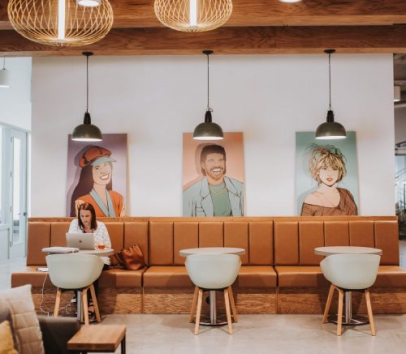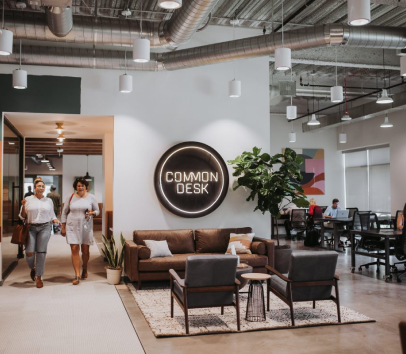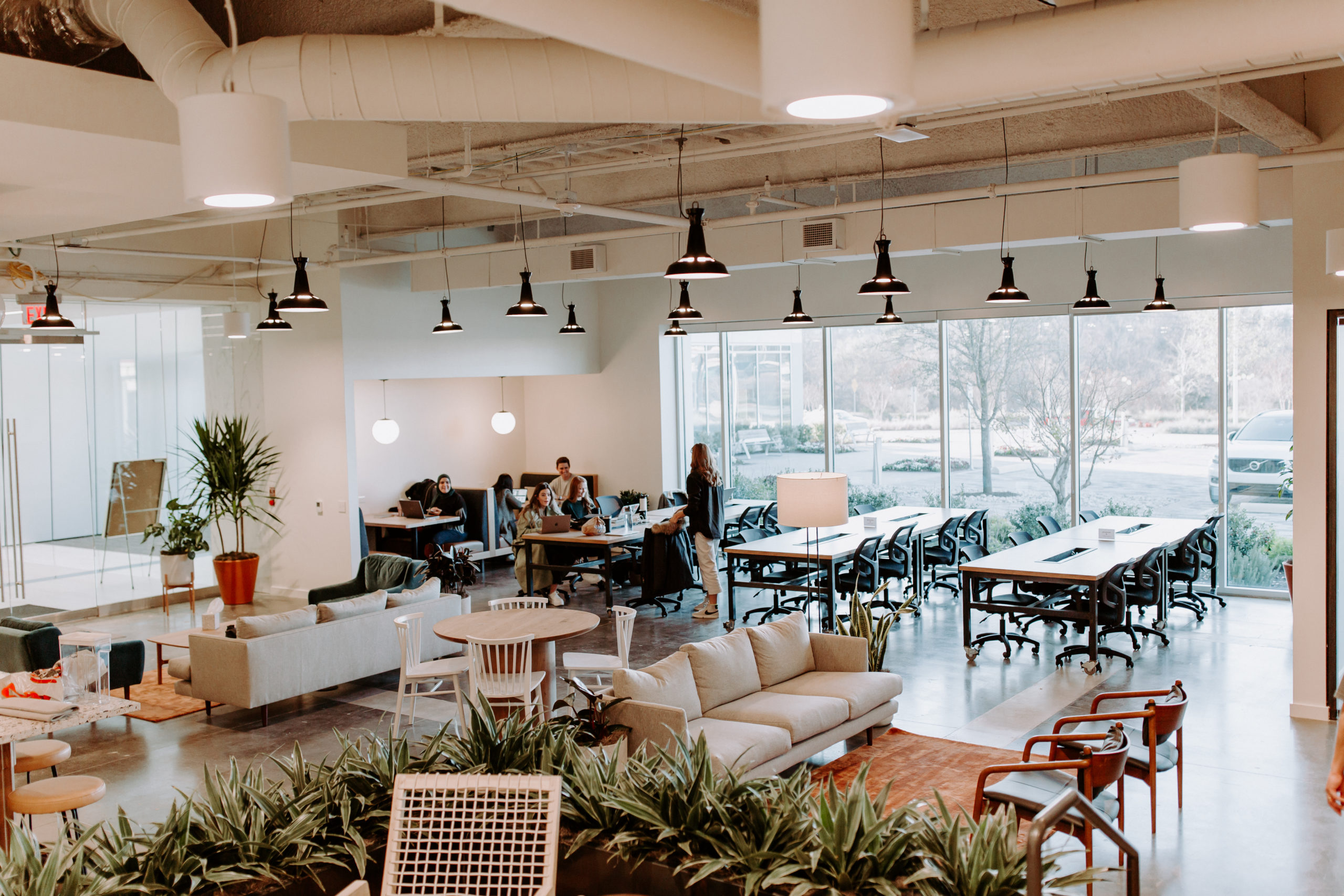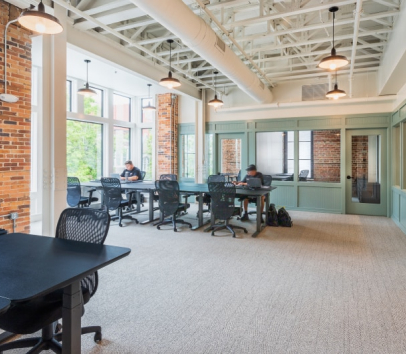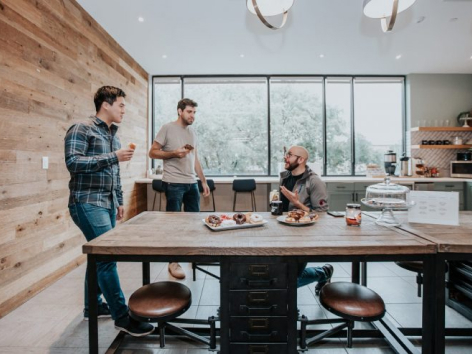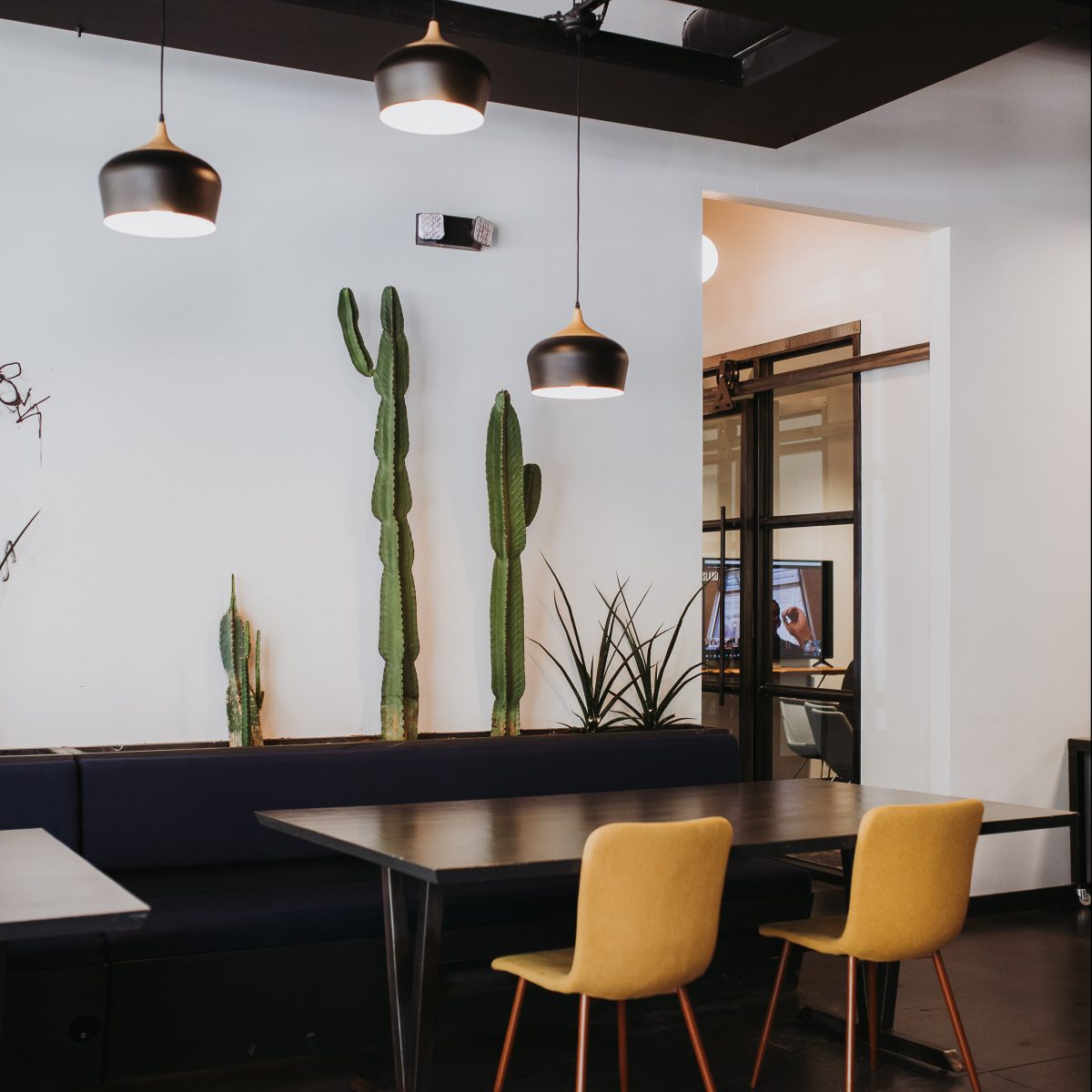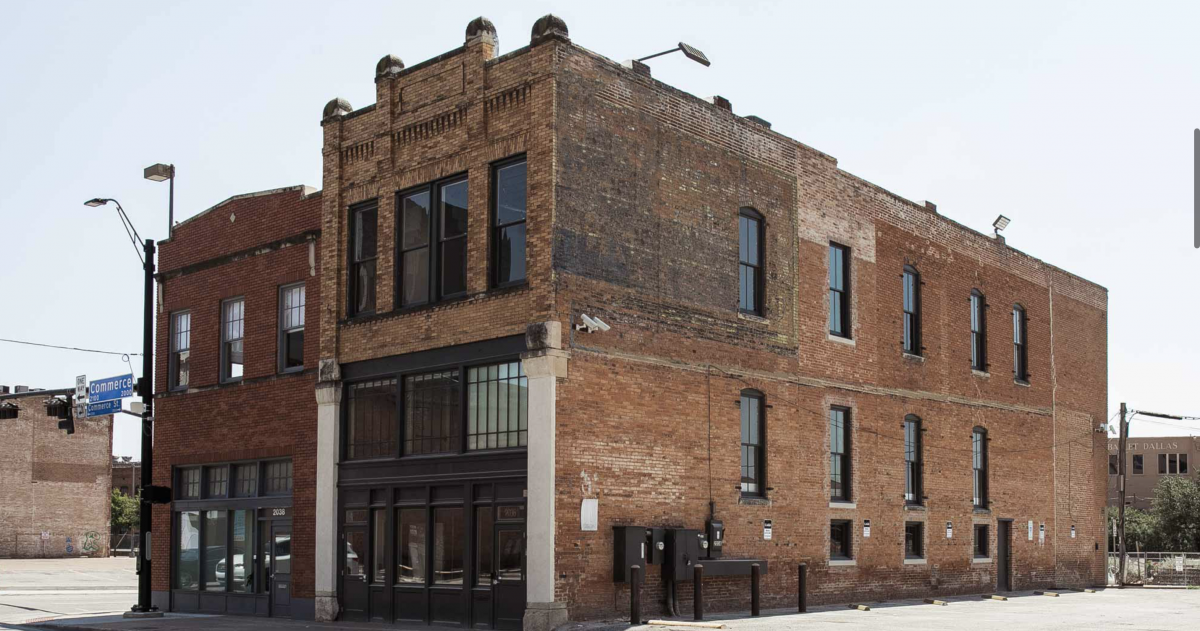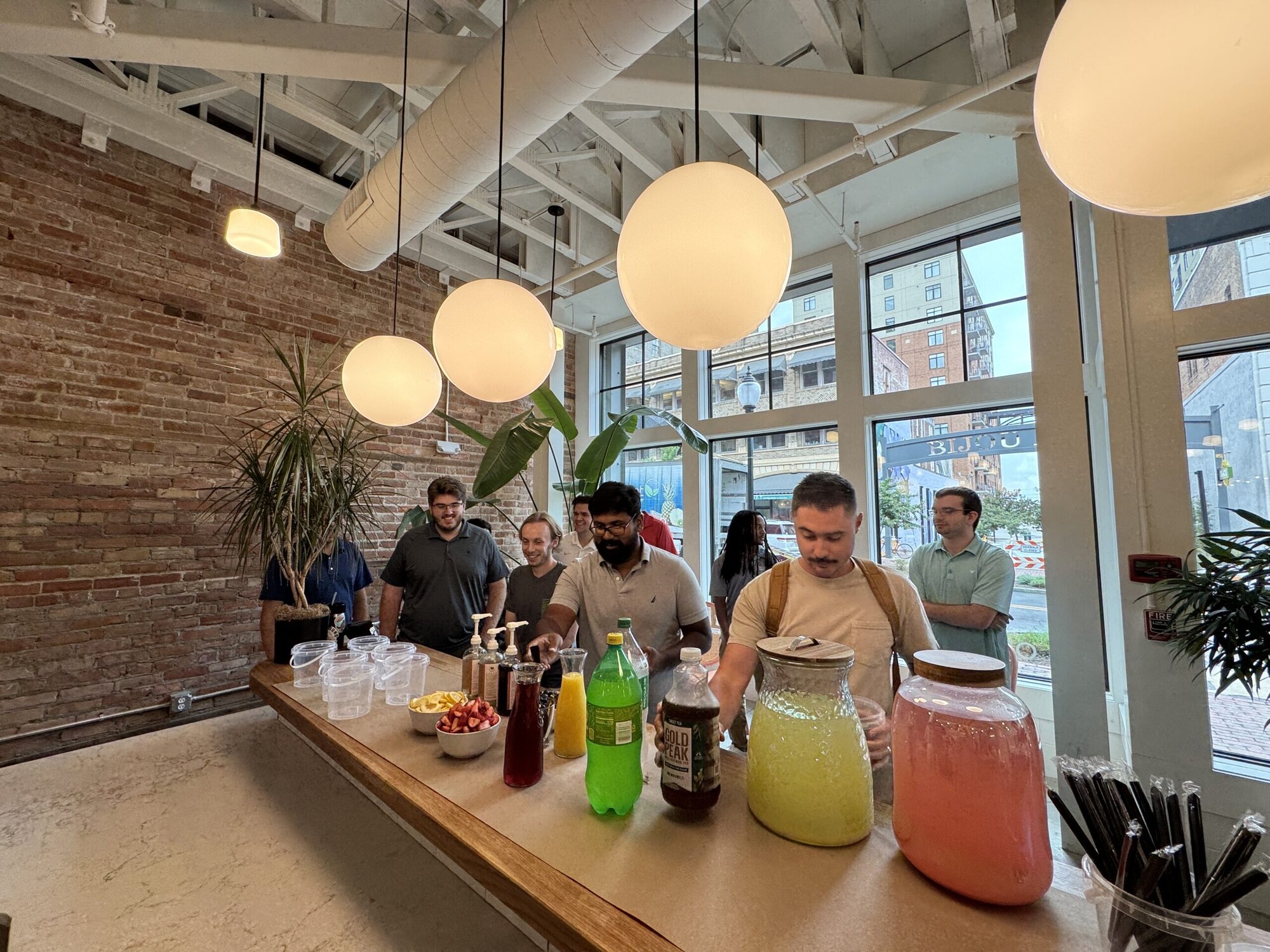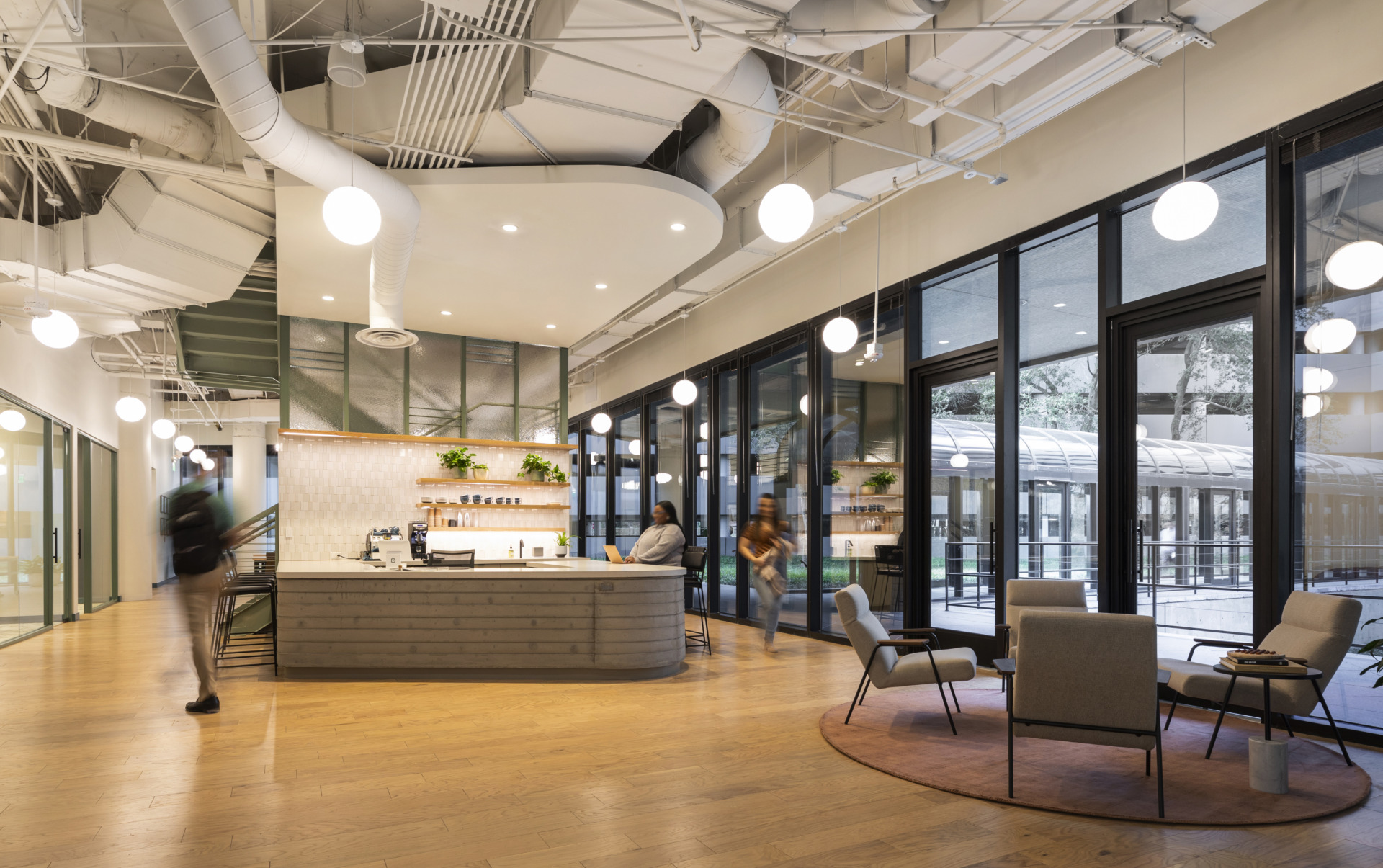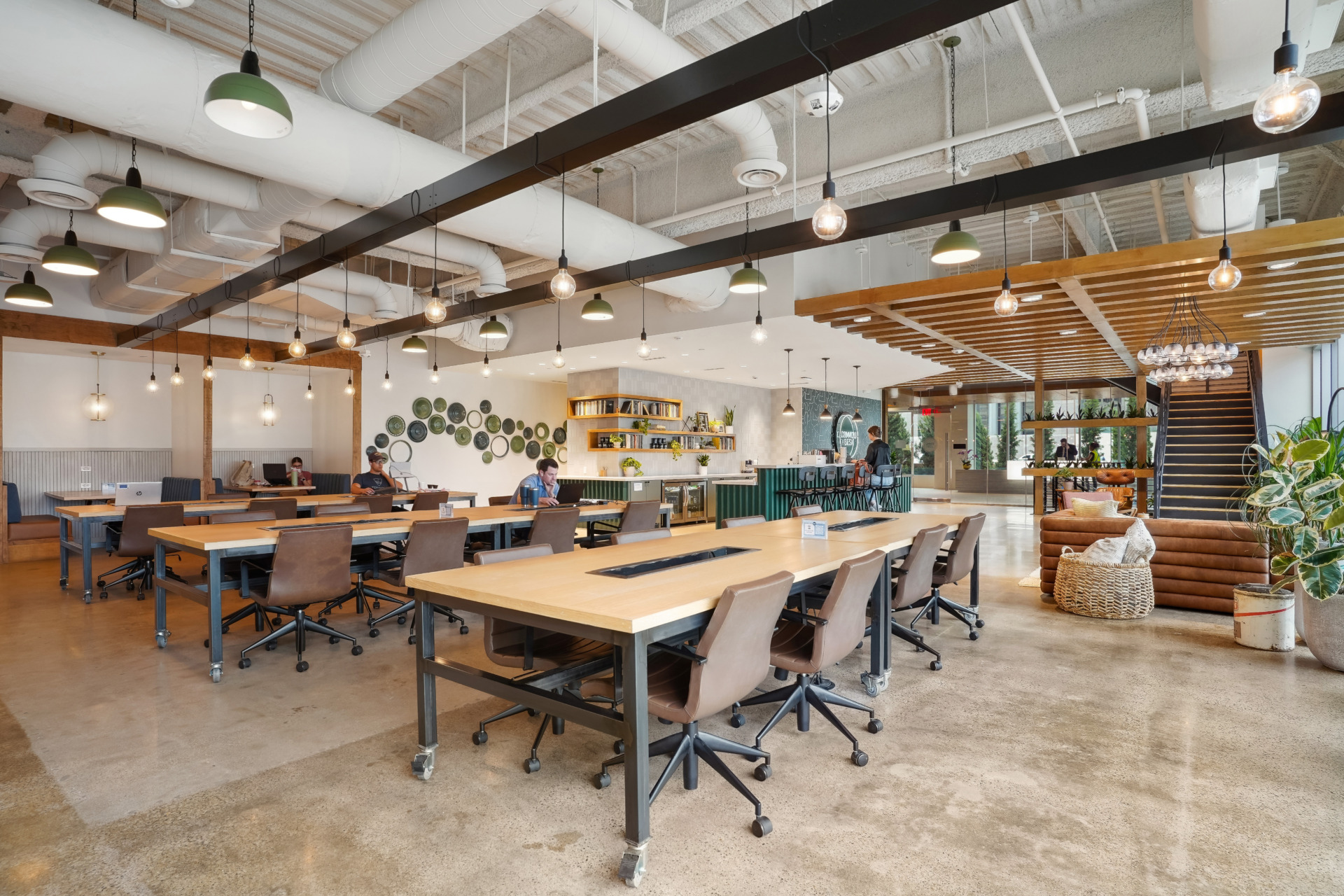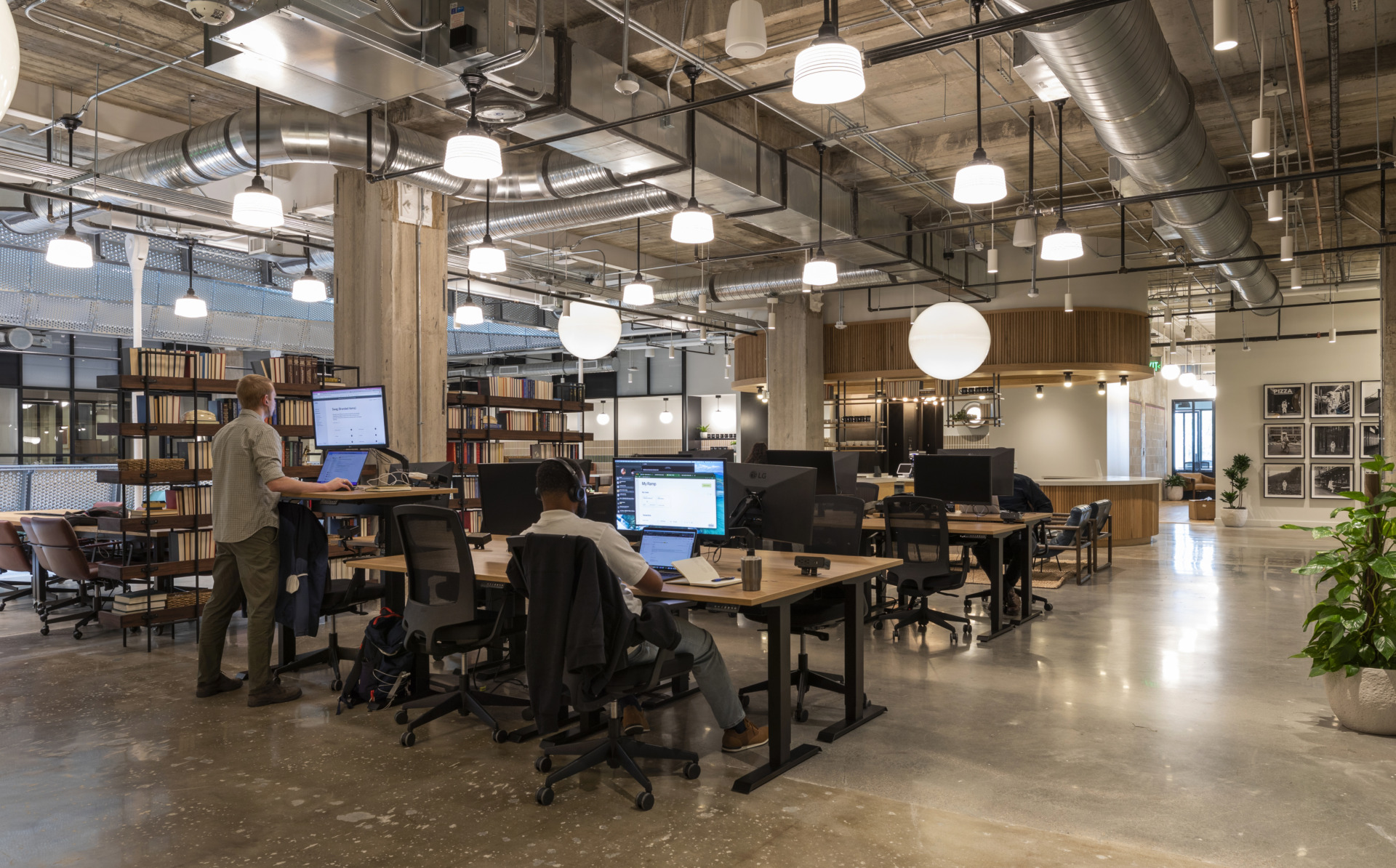It’s easy to preach about the benefits of coworking for professionals in particular, but not mentioned nearly enough are the benefits of coworking to local economies. Coworking spaces are hubs for hundreds of companies to work in one central space– meaning that coworking spaces are thriving ecosystems ready to pour their resources into the local businesses surrounding them.
If a neighborhood has a coworking space within it or in close proximity, they’ve basically hit the monetary jackpot. Why? Because coworking encourages supporting other businesses through the nature of what it exists to be; members support one another day by day when they come in for work, but that trend doesn’t just stay in-house– members carry it with them to local stores, coffee shops, restaurants, bars, and everything in-between.
We did some number crunching a few months ago to break our member population down into a few statistics. Our findings are based on a survey answered by 100 members in Common Desk – Deep Ellum, our original location. Here’s what we found:
“People tend to think that large corporations are the ones generating jobs and boosting the economy, but they’re not the only ones.”
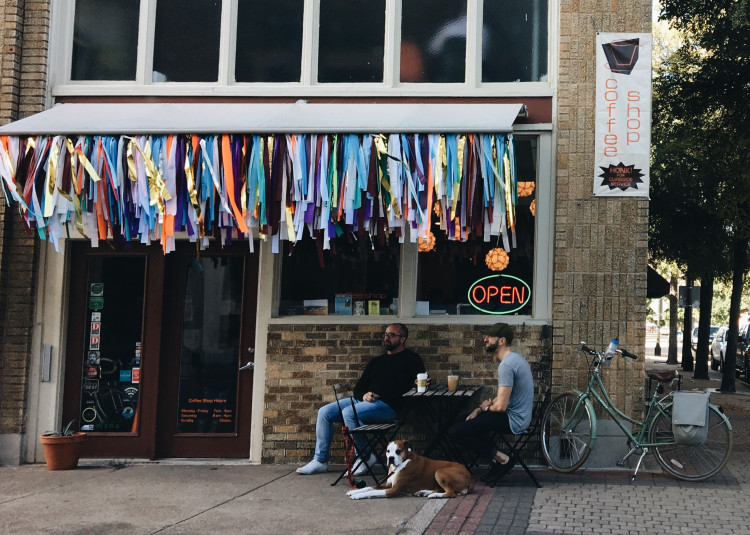
Most companies within the Common Desk community are 1–10 people in size. 45% of our members are self-employed, and 54% are employed. These companies, when counted collectively, have created 736 jobs (and counting) since joining Common Desk (impressive, right?). People tend to think that large corporations are the ones generating jobs and boosting the economy, but they’re not the only ones. Small businesses of 1-10 people are creating job opportunities left and right.
Not only are coworking members generating hundreds of jobs within a community annually, but they’re also generating a lot of revenue. How much you ask? Hold onto your britches….
Common Desk members spend an average of $23.43 per day in Deep Ellum. That’s a good bit of cash. When you multiply that by the average number of days members come in, by the number of members, by the number of days in a year, you get (drum roll please)….
1.5 million dollars per year!
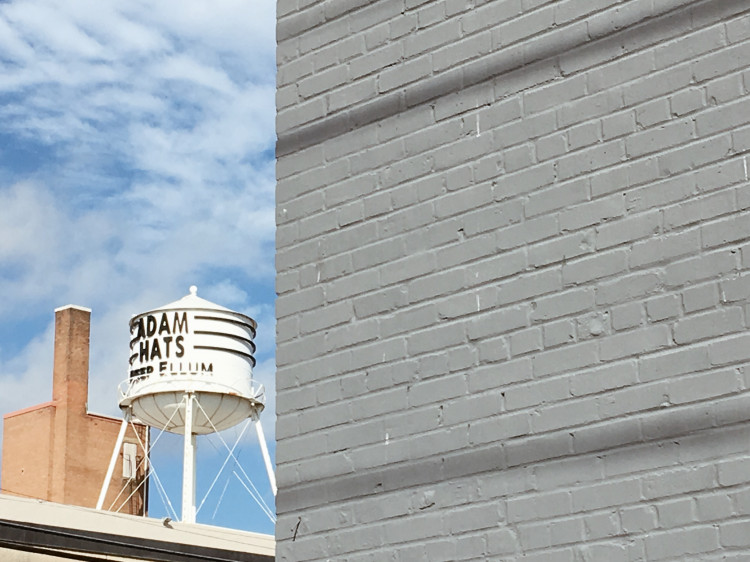
One. Point. Five. MILLION. Dollars. All being funneled into local bars, restaurants, coffee shops, and stores. It really is mind blowing what the underdog world of startups, small business owners, artists, freelancers, remote workers, and nonprofits can achieve together, don’t you think?
In the 4 years that Common Desk – Deep Ellum has been open, it’s seen the Deep Ellum neighborhood go from an undesirable ghost town to a popular bustling Dallas destination. In this year alone, we’ve seen 11 new businesses open on Commerce Street alone, which is just one of the high-traffic sections of Deep Ellum. You heard us right– 11 new businesses have opened within 5 blocks of each other on one street in Deep Ellum. Our members are funneling $1.5 million into the neighborhood, which is helping current businesses stay open to attract new visitors, which fuels the neighborhood’s economy, which brings in new businesses.
Also not to mention is the fact that 3 new storefront businesses in Deep Ellum are being opened by Common Desk members. Coworking spaces act as incubators for small businesses and entrepreneurs, and once the incubation is done and a foundational business has been established, many businesses tend to outgrow coworking’s capacity. But if these businesses enjoyed their time in their coworking space’s neighborhood, there’s a high chance that they’ll stay.
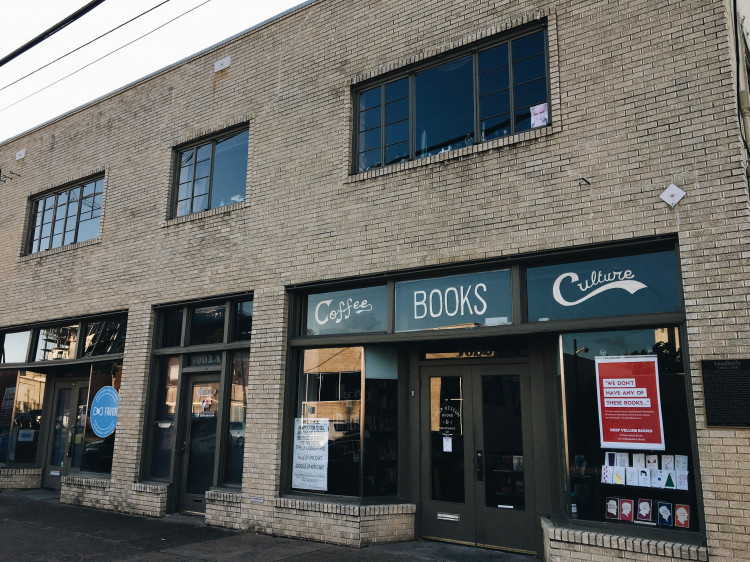
Over the past four years, former Common Desk companies have backfilled approximately 25,000 square feet of office space in the neighborhood. If you apply a density of 5 people for every 1,000 square feet (which is the average density for creative offices), this equates to another 125 people working in the neighborhood daily and another $487,500 dollars poured into local businesses annually. This is exactly the case for both Favor and Deep Vellum, who are both Common Desk alums now located on Commerce Street, a stone’s throw away from us.
New restaurants, bars, and shops are desirable for economic development, but local coworking spaces are the attraction that cities should be seeking relentlessly. Why local coworking spaces and not national coworking spaces? Because if a business is started locally, it’s going to spend its money locally and encourage its members to support other local businesses, too.
So there you have it, folks. Coworking boosts business for remote workers, startups, freelancers, artists, small businesses, local businesses, local economies, and the economy as a whole.
Don’t overthink it. #VoteCoworking.

